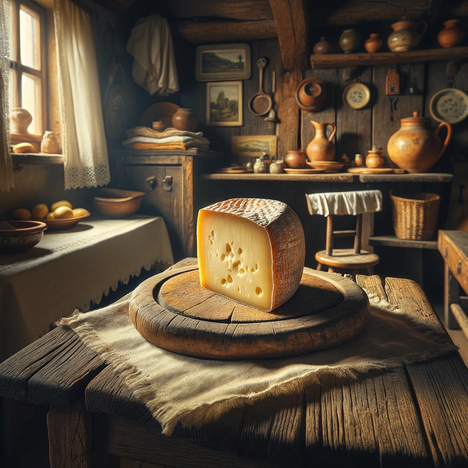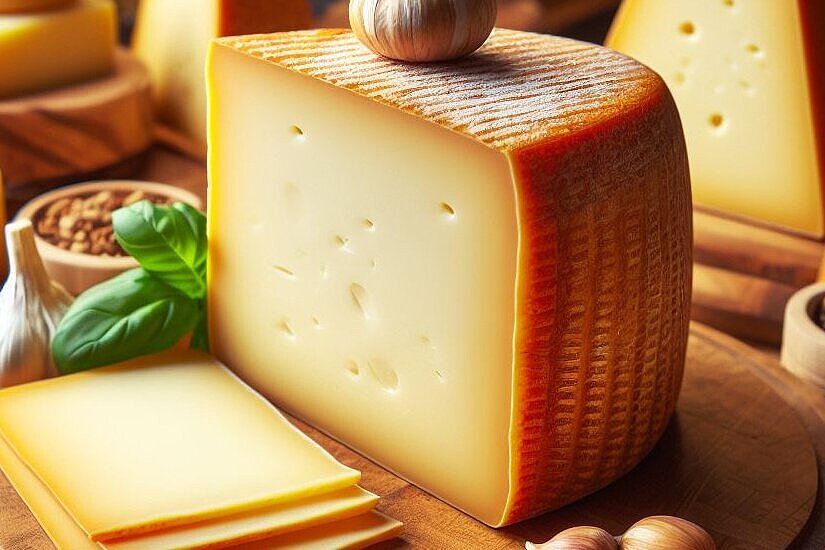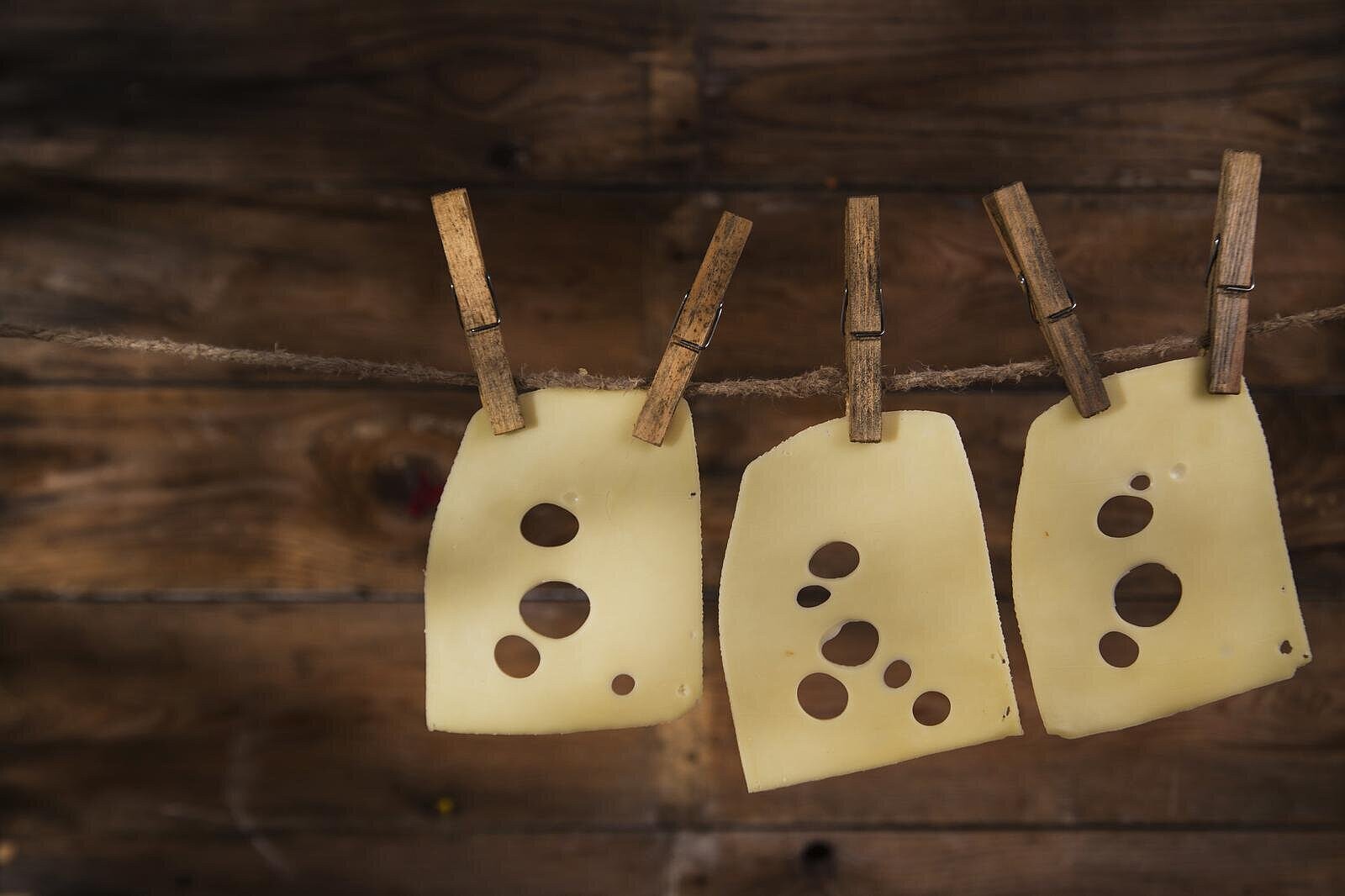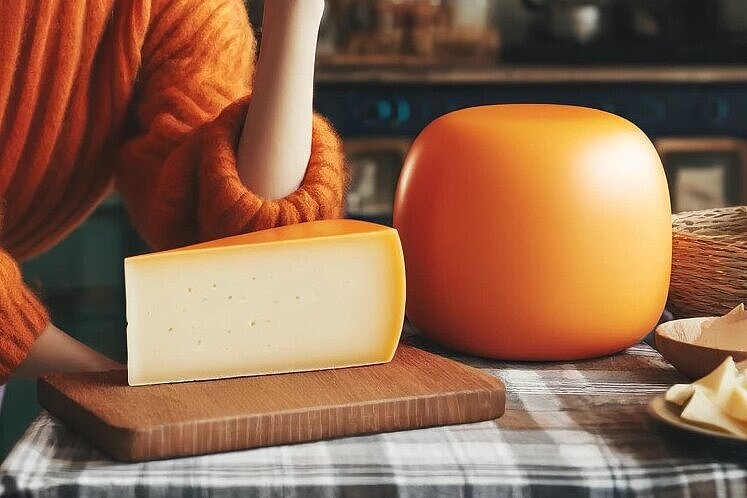Fontina

Fontina is a northern Italian cheese with a protected designation of origin, made from the raw milk of cows that graze in the Aosta Valley. It has a mild and nutty flavor and a creamy texture that melts well. But is Fontina also a suitable cheese for dogs? In this article, you can find out more about the advantages and disadvantages of Fontina for your four-legged friend.
What is Fontina?
Fontina is a traditional cheese from the Aosta Valley, an alpine region in north-western Italy. Since the 18th century, it has been made according to a fixed recipe from the whole raw milk of cows that graze on the mountain pastures in summer and are fed with local hay in winter. The milk is processed within two hours of milking and curdled with rennet from the dairy calf. The curd is baked at a high temperature and then pressed into molds that give the cheese its typical cylindrical shape. Maturation takes place in caves carved into the rock on the slopes. The temperature and humidity remain constant all year round, which is ideal for the development of the cheese. The wheels are turned daily and alternately salted and brushed to remove the layer of mold and keep the rind moist. After three to four months, the Fontina is ready to eat. It has a straw-yellow color with small holes, a thin orange rind and a fat content of around 45 percent. Its flavor is mild and nutty, with notes of butter and roasted nuts.
What are the benefits of Fontina for dogs?
Cheese is generally a favorite treat for dogs because it is rich in protein, calcium and other nutrients that are important for bone, tooth and muscle health. Cheese can also help to strengthen the immune system, lower blood pressure and regulate cholesterol levels. Fontina is a particularly high-quality cheese because it is made from raw milk, which contains more vitamins, enzymes and antioxidants than pasteurized milk. Fontina also has a relatively low lactose content compared to other cheeses, which makes it more tolerable for dogs that are sensitive to lactose.
What are the disadvantages of Fontina for dogs?
Although Fontina can have some health benefits for dogs, it should only be fed in moderation. Too much cheese can lead to obesity, digestive problems or even lactose intolerance. Fontina can also have a high salt content, which can be harmful to dogs' blood pressure and kidney function. Therefore, you should always make sure that you only give your dog small amounts of Fontina and do not use it as a staple food. You should also make sure that you only buy genuine Fontina that bears the DOP seal and comes from the Aosta Valley. Other varieties of Fontina may be made from pasteurized milk or contain additives that can be unhealthy or even toxic for dogs.
Fontina is a northern Italian cheese with a protected designation of origin, made from the raw milk of cows that graze in the Aosta Valley. It has a mild and nutty flavor and a creamy texture that melts well. But is Fontina also a suitable cheese for dogs? In this article, you can find out more about the advantages and disadvantages of Fontina for your four-legged friend.
If you notice any signs of hypersensitivity or poisoning in your dog, you should see your vet immediately. We are not a substitute for a vet, but we try to be as accurate as possible. Every dog reacts differently and we recommend you get a second opinion or consult your vet if in doubt.
Stay healthy and take good care of your four-legged friend!😊
Similar to Fontina
Gruyère is a hard cheese made from raw cow's milk. It comes from the canton of Fribourg in Switzerland and is named after the town of Gruyères. It has had a protected designation of origin (PDO)...
Emmental consists mainly of cow's milk, which is pasteurized and mixed with rennet and lactic acid bacteria. The cheese then matures for several months in cool cellars, where it develops its typical...
Provolone is an Italian cheese that belongs to the pasta filata family, which means that it is made through a process where the curd is heated and then pulled or spun until it reaches the desired...
Taleggio is a soft cheese made from pasteurized or raw cow's milk, which is stored in moist and cool ripening chambers for at least 40 days. It is regularly washed with salt water to promote the...



